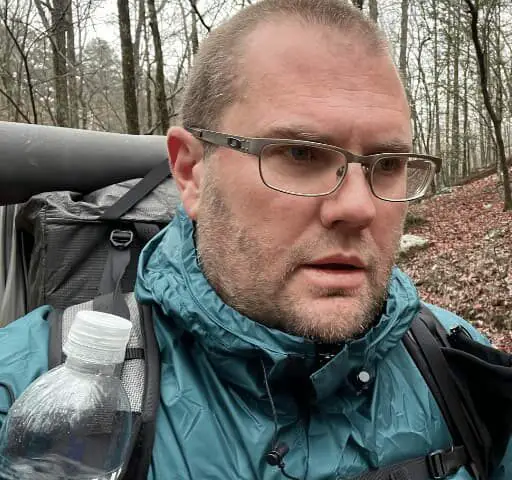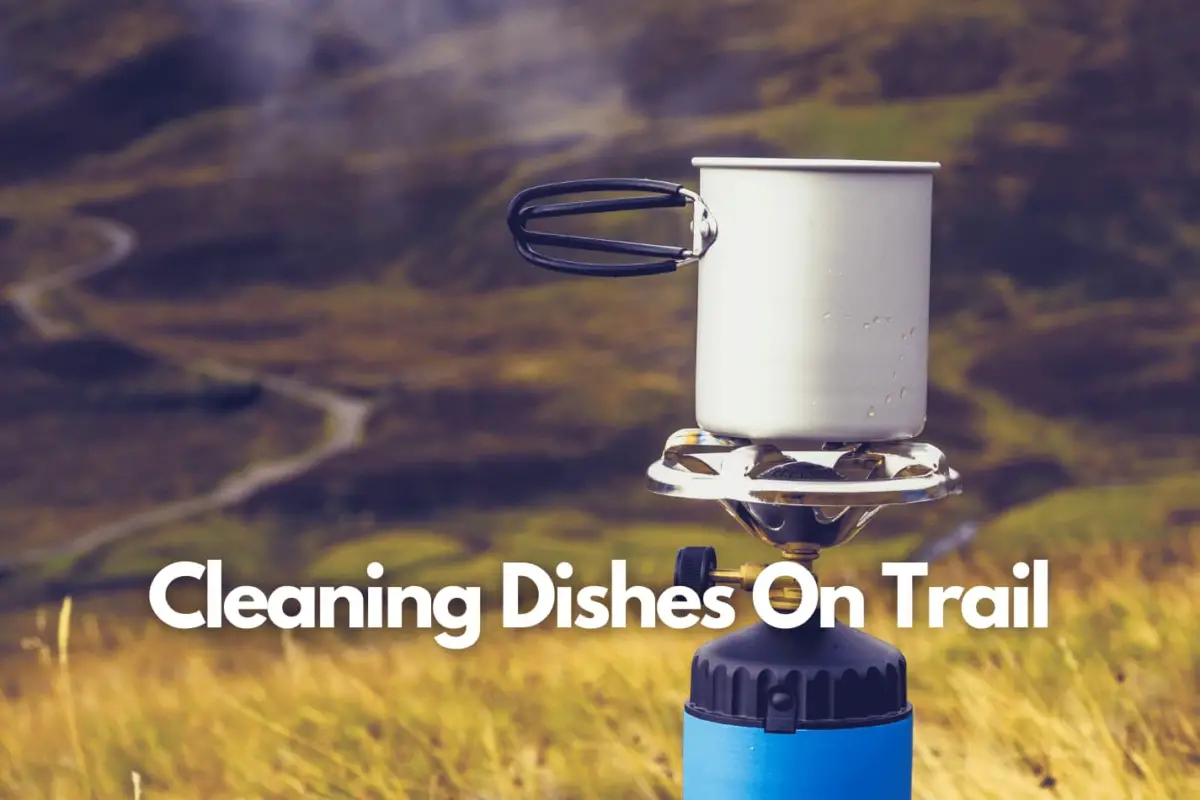It’s no secret that properly cleaning and washing dishes can be a daunting task while on the trail. But what if I told you there was a way to make this dreaded chore a breeze? With the right tools and tips, washing dishes while backpacking can be a snap.
In this comprehensive guide, we will cover everything from packing the right supplies to using the right techniques. So whether you’re a backpacking beginner or a seasoned pro, this guide has you covered.
How to Wash Dishes While Backpacking
There are numerous methods you can use to clean your pot or other dishes while on a longer hike, what you really want to consider is just making sure you clean it enough to get rid of any bacteria that could potentially make you sick.
Below are three popular methods used to clean dishes while on the trail:
The “Express Quick Clean”
- Remove Large Excess Food – Add any unconsumed food into a ziplock or similar bag you carry in with your food.
- Add Clean Water – Add a little bit of clean water that’s been filtered into the pot
- Perform a Finger Scrub – Using your index or similar finger rub down all the surfaces that have come in contact with food, typically the entire interior and lip.
- Clean Rinse – Using clean water add enough to rinse the crud around to dispose
- Dispose of Dirty Water – Dig a hole similar to a cat hole 200′ from camp and water and pour the dirty wash water into the hole and cover as normal.
- Dry – This should be simple with any small camp towel you carry or one of those little compressed towels.
Wash Dishes Without Soap or Water
Sometimes it is unsafe to wash dishes in areas that are known to attract wildlife. You also may not be able to wash dishes if there is not enough water.
If it is winter and there is snow, it might be cold outside. In these circumstances, the best thing to do is to remove as much as possible residue from all your dishes and utensils before packing them up.
The best way is to consume all the food using a tortilla, bread, spoon, or your finger to wipe the sides of the dish. This will help you get all the food and you will still have the calories you need anyway.
Washing Dishes With Soap
The standard and more traditional way of cleaning utilize soap and water. Soap is able to break down the bacteria and render them harmless.
You will want to find a biodegradable soap that is made for the outdoors like Dr. Bronners, these types of soap are available at most outdoor stores or online.
My personal choice of Dr. Bronner’s is because it works well when used to clean just about anything from gear and pots to personal cleaning while out for long stretches.
- Add clean water to the item you want to clean, pot, cup, etc
- Add a drop of Bronner’s soap to it
- As with above use your finger to scrub the sides
- Add your spoon or spork and soap them up also
- Dig a hole and dump out at least 200 feet from camp and water
4 Tips for Washing Dishes While Thru-Hiking
Cleaning up is often overlooked or done hastily to get to rest and this leaves you open to getting sick from bacteria growing in your pot or other dishes.
To avoid this follow these four tips:
Scrape It Up and Pack It Out
You need to follow LNT, or Leave No Trace, principles and not dispose of food in the forest including burning in fire pits or similar means as this still leaves smells and residues close to campsites.
Instead, always bring an extra gallon storage bag which is used expressly for trash and scrape all excess food into this bag, you then carry this out with you and dispose of it once you find a trash bin.
Heat Water and Strain Food Bits
If you have a stove or fire heat the water to wash and clean out the pot then take this “grey water” and if possible strain to remove additional food parts before disposing of it like above in a dug put 200′ from camp areas and water sources.
If the ground is too difficult to dig into you can work to spread out the water by dispersing it over a wide area, the intention is to help it dissipate instead of pouring it into one spot.
Assess Your Need for Soap
For most thru-hikers, the use of soap is a hassle, and instead, they will go with the finger clean express method above and then fully clean out their cook gear once in town at a hostel, hotel, or similar space.
Disinfect with Boiled Water
Consuming water that has been heated to a high temperature, is sufficient for drinking, cooking, and cleaning. If you’re cleaning without using soap or wood ash, boiling water will eliminate any viruses, bacteria, or other harmful microorganisms that might cause diarrhea.
The common fiend of thru-hikers is microorganisms such as Giardia and Cryptosporidium. Both of these are killed by heat, so merely bringing the water to a boil is often enough.
Then to also sanitize any utensils you use you would want to immerse them in the boiling water.
FAQs on Cleaning Dishes on the Trail
As I find more cleaning-related questions on dishes I will append them into the post where they make sense or directly answer them below:
Why Even Bother Washing Your Dishes?
The primary reason to wash dishes is to avoid contracting diseases like giardia, cryptosporidium, and E. coli (E. coli). Bacteria may cause loose and unpleasant bowel movements that are unappreciated on the trail.
It also aids in the prevention of wildlife and pests from visiting your camp. Animals with a sensitive sense of smell, such as bears and rodents, are common visitors to unclean areas that smell like food.
What About Cleaning Changes When in Bear Country?
There isn’t a huge change to how to wash dishes while camping in bear country other than to focus on keeping food preparation and cleaning far from where your camp actually is.
You should also be aware that any smells on your clothes or gear can attract animals so make sure to clean up everything including yourself before heading to bed.
Final Thoughts on Cleaning Dishes On the Trail
I hope this helps you to understand that bringing a huge amount of cleaning supplies is not a thing for thru-hikers and that a little bit of creativity goes a long way.


Leave a Comment